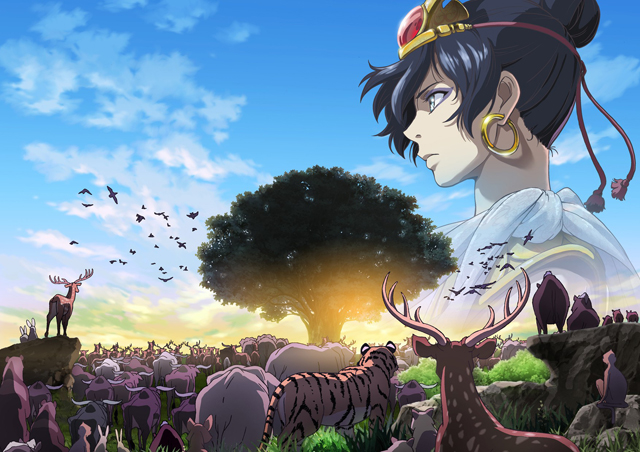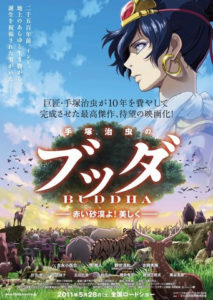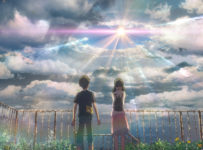Director: Yasuomi Ishito
Runtime: 119 minutes
Starring: Sayuri Yoshinaga, Masato Sakai, Hidetaka Yoshioka
Country: Japan
Rating: Wait for the DVD/Blu-ray (?)
The works of Osamu Tezuka have the distinguished honour of being considered masterpieces in both the East and West, with his manga works adapted into anime series that became popular all around the globe. If you don’t know the name instantly, you might recognise some of his more famous works: Astro Boy, Kimba the White Lion and Black Jack. “The Godfather of Manga” is also known as the “Walt Disney of the East”, which may reduce his works to a simple comparison, but also give an indication of just how significant his works are in their native Japan. Along with Phoenix, the 14 volume Buddha is one of his most significant and spiritual works, taking 10 years of Tezuka’s life. An adaptation to the big screen might be considered madness.
Buddha – The Great Departure (手塚治虫のブッダ赤い砂漠よ!美しく) takes elements from the first three volumes of Tezuka’s work, and begins with the birth of Siddartha Gautama and the death of his mother shortly after. As the country is torn apart by famine, drought and bloody warfare, Siddartha tires of his life as a prince and seeks a higher calling. This is the start of his journey towards enlightenment, as he will eventually become the monk that is revered by millions across the globe today.
Even with a planned three-film saga, the reduction of any literary work into the compressed format of cinema is always a tricky affair, especially when the source material is a whopping great set of shelf-fillers from a revered manga artist. Buddha proves to be something of a contradiction in this sense, rapidly squishing some of the significant elements of the source material into mere seconds of screen time. For example, a number of commentators have picked up on the abbreviated telling of the tale of the rabbit who sacrifices himself for a starving monk at the start of the film. Yet at the same time, director Yasuomi Ishito revels in extending battles out to epic proportions that seem to be contrary to the spirit of the Lord Buddha. As the film drags its bloodied feet into the prolonged second hour, one would be forgiven for crying out “Is he Buddha yet?”
When Prince of Egypt was released by the fledgling DreamWorks back in 1998, it went out of its way to be careful to depict an Old Testament religious figure that was revered by half the world in such a honourable way as to suck all the life out of the story. Buddha suffers the opposite problem, in that it seems to spelling Buddha with a capital B for Blood. The chaotic editing muddies any semblance of a plot that viewers not intimately familiar with the legend of Siddartha, lurching from one moment to the next so as to give that B a tertiary meaning of boring.
The animation, from the giants at Toei Animation (Digimon) has stripped all the Tezuka out of the piece, with a “barely there” animation style that is reminiscent of the “illusion of animation” style of the mid-1990s. This cheap-looking approach lessens the impact of the scattered story even more, and with the exception of a few pretty backgrounds, most of the action on screen is a disengaging mess. If the aim is to either pay respect to the creator of the anime or its subject, very little ground will be gained on either front by the end of this first film.

Buddha – The Great Departure played at the Japanese Film Festival on 26 November (Sydney) and 6 December (Melbourne) 2011 at the 15th Japanese Film Festival in Australia.






